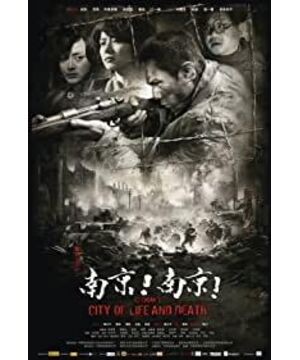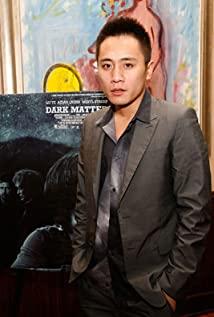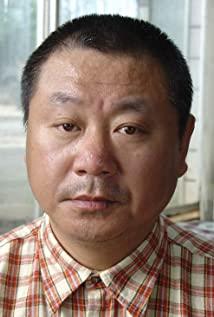"Nanjing! Nanjing! ", even every dragon set is of quality.
So I thought, maybe Lu Chuan just wanted to photograph some faces.
Come back to see about "Nanjing! Nanjing! ", I found that Lu Chuan really had such an idea. So I thought, I should have understood Lu Chuan.
Once again, there are countless people competing with Lu Chuan, and young filmmakers on the Internet seem to be very dissatisfied with this film, including a film blogger who I like very much. In their opinion, "Nanjing!" Nanjing! "Nearly nothing.
Why are people's feelings so different?
There is such a big difference in how people feel.
Awareness and acceptance of this may be the birth of a liberal.
I realized it, and I accepted it.
But I continue to think: "Nanjing! Nanjing! " is a world-class masterpiece. Facing "Schindler's List" and "The Pianist", Lu Chuan can have a clear face.
Some people say, "Nanjing! Nanjing! "Nanjing is not a city, but a setting? Oh? Could it be accompanied by a tactical map with arrows? Put a street sign on every bombed-out street? Could it be "Nanjing! Nanjing! "Should be a travel guide? Or, tell me, which good movie gave you a geographic illustration of a city?
Some people say, "Nanjing! Nanjing! "There is nothing new in film art. I agree, yes, Lu Chuan is not Godard, "Nanjing! Nanjing! 》 is the mainstream in technique. so what? The key is not the old and the new, but the quality. The mainstream and traditional techniques are used to the extreme, and they are still masters. What breakthroughs does "The Pianist" have in film art?
"Nanjing! Nanjing! "The technique expresses what it wants to express, and its sound and image quality creates a strong enough aura, that's enough.
Some people say that there are too many clues and the story is too fragmented. There are 2 points: 1. As far as the viewing experience is concerned, I feel good. I think the switching between clues is very natural, in line with the natural order of time and logic between events; 2. I don't know who said this. What do people want? I can only guess, could it be that they want a clever connection and connection between multiple clues like "Two Smoking Guns" or "Love is a Bitch"? If this is the case, then I can only say that this film must not have a "smart" plot. This subject matter does not allow artificial traces. The more ingenious it is, the more dramatic it is.
Some people say that the characters are not full and conceptual enough. OK, I admit, the characters may not be as deep as in Dostoevsky's or Kieslowski's work, but they're also far from flat. Obviously, this film is about "the story of a few ordinary people in a big event", it is not a "character study" (character study), but a "group portrait" (Gruppenbild); therefore it can only be Compared with works that are also "group portraits", "Seven Samurai" is recognized as a relatively successful group portrait in film history, right? Look at the characters inside, how "three-dimensional", how "non-conceptualized" and "non-functionalized"?
It is said that Lu Chuan originally imagined that Liu Ye would have many dramas later, such as a love scene with Gao Yuanyuan. In that way, perhaps the characters are more "fuller" and the plot is more closely linked. But luckily it didn't do that! That doesn't conform to the logic of the event! Fall in love during the Nanjing Massacre? Help... we don't want a blockbuster like Pearl Harbor.
In such a historical situation, a face, a gesture, a moment, it is enough to make people flash.
"Nanjing! Nanjing! "Shaping characters is awesome. In the scene of drinking soda, Kadokawa was alive within tens of seconds (Kurozawa Akira was just like that), and I have to say, from that moment on, I cared for this character.
What? do you care for a jap? Yes, as a drama character, if you don't take care of him, it's the writer's failure. All the incidents that happen to characters whose viewers don't care are all rubbish. The role of care for Kadokawa does not mean that you agree with Kadokawa; even if you agree with Kadokawa, it is far from agreeing with the "Japanese Army". To sympathize with a Japanese soldier is to sympathize with the Japanese army? Is it equivalent to "sympathizing" with the atrocities of the Japanese army? Will it soften the hatred? Forgot about history? Bullshit! ! !
The rudeness and confusion of some people's concepts is outrageous. Ok, you can be content with the laziness of thinking, and I can accept that (not everyone likes thinking after all), but please don't stop or despise other people's thinking.
In my opinion, Lu Chuan presents another aspect of the Nanjing Massacre: the previous films only presented the atrocities of one race against another, but this one presents the atrocities of people against people.
The most reliable representation of the Nanjing Massacre is as follows: 1. Fully display the killing and rape of the massacre to satisfy the audience’s consumption of violent pornography; 2. Clearly express racial hatred, thus achieving political correctness and satisfying both It addresses the viewer’s need for “patriotic” sentiment while rationalizing the consumption of violent pornography. So the viewer can walk out of the cinema after double satisfaction, and continue without thinking, and the film can be undamaged and blameless.
Some angry youth may need such a thing? At least, something like this doesn't provoke their dissatisfaction.
And Lu Chuan's awesome point is: "Nanjing! Nanjing! Of all the comfort women scenes in ", there is not a single scene that arouses the slightest lust in my heart.
For those who accuse the author of being "too calm" and express dissatisfaction with the author's "thinking", I would like to say: I wonder, is the history of the Nanjing Massacre a fragile thing? It can't stand calm, can't stand thinking? It can't stand the sun like winter snow? Does it have to be sustained by refusing to "know"? Bullshit! In my opinion, anything that fears thinking is weak, and so is faith, so is hatred.
For those who accuse the author of not "thinking" deeply enough, I would like to say: On the one hand, I agree that the possibility of thinking more deeply exists, but I don't know which director in China has done or will do it in similar subjects, while Lu Chuan is good enough; on the other hand, maybe you are more suitable to read a historical work or thesis, a movie is a movie after all, it can only present what an image can present.
What exactly is the Nanjing Massacre? war? militarism? mental illness? ...No, I think, it is naked "evil", a product of incomplete human evolution, a legacy of brutality, and what Christianity calls original sin. Set an idiom: Everyone has a Nanjing city in their hearts.
Certain political, historical and cultural situations will give birth to evil in people's hearts - when doing evil not only does not need to take responsibility, but is even approved and encouraged, how many people can resist the evil in their hearts?
However, the study of political, historical and cultural situations can never fully explain, let alone eliminate "evil" - unless people evolve into "superhumans", "evil" will always exist and will always be around in dark corners.
Read history, you will see countless Nanjing. Look at what the Mongols did to the whole of Asia and part of Europe, what the Manchus did to the Chinese nation, and what the Chinese did to the Chinese... Lu Xun said that the twenty-four histories are Don't think that Chinese people can be free from "evil", no, no one can be free from "evil", including saints - the only thing we can do is to fight against evil: including ourselves The one in my heart.
"Nanjing! Nanjing! chose to tell stories of struggle, not just suffering. In the face of the naked evil of the Holocaust, it tries to find "good". This is "Nanjing! Nanjing! "The most valuable place.
Good, the easier it comes, the cheaper it is. The light found in the darkest places is the most valuable.
Last year, I read The Rape of Nanking by Zhang Chunru.
It's a good book, but also a depressing one. Because, in this book, I can't see the subjectivity of the Chinese people: Chinese people are suffering, saved, useless.
And Lu Chuan told us that we had subjectivity, we had resistance, we had active sacrifice, and we had flashed light in the deepest darkness.
My only reservation about this film is the ending.
When I saw Kadokawa salute his soldiers, I thought: Could it be that he is going to kill himself? No, Lu Chuan, I beg you, don't let Jiao Chuan commit suicide!
It's not because I "sympathize" with the character, but because, it's impossible.
Movies are about the art of possibility, and you can be unfaithful in historical details, but the lines of possibility are strict.
The agent in "The Wiretap" was moved by Brecht's poem and transformed. Someone asked the director of the Berlin Prison Museum, is there such a case in history? The curator replied: Not one.
Do the tens of thousands of Japanese soldiers in Nanjing have a conscience? I think there should be. Will anyone commit suicide because of this? With my knowledge of history and human nature, I can make an arbitrary verdict: No, not one.
View more about City of Life and Death reviews











